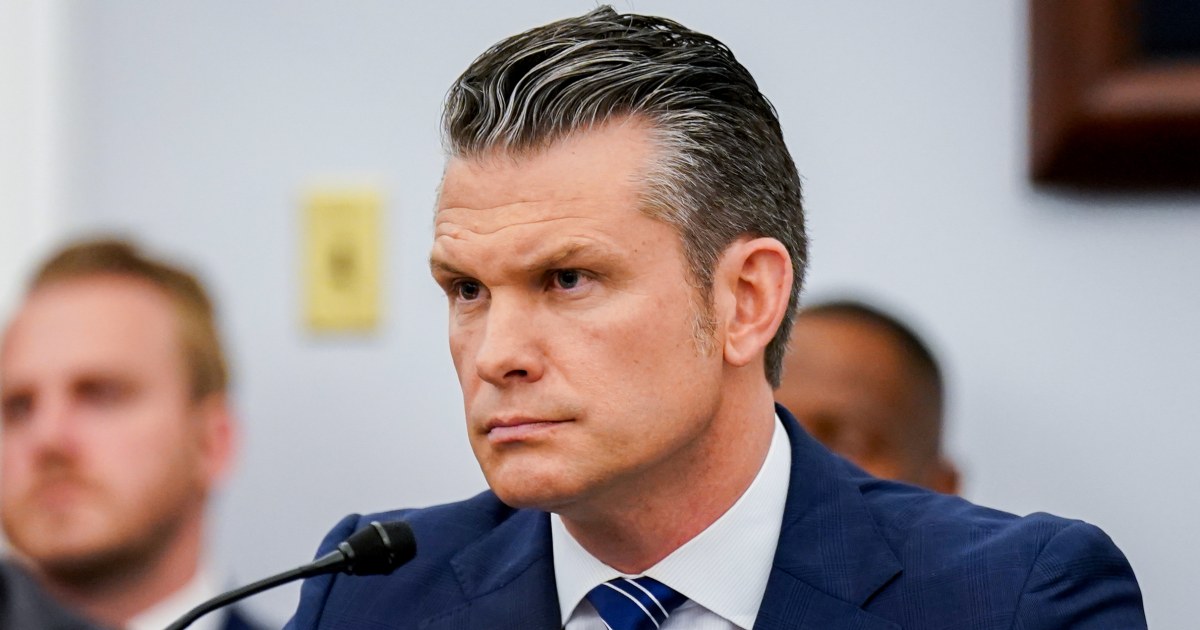
In a latest improvement that has stirred conversations throughout the political landscape, Pete Hegseth, a famous tv persona and military veteran, has taken an unusual stance. He has entreated Pentagon officers to scrutinize and investigate service individuals for any negative posts about conservative commentator Charlie Kirk. This pass has sparked a debate approximately free speech, the function of social media, and the expectancies placed on military employees when it comes to political discourse.
Hegseth, who's a familiar face to many because of his role on Fox News, has been regarded for his outspoken opinions. However, his latest call to motion has raised eyebrows even amongst his ordinary supporters. He believes that provider contributors who criticize Kirk won't align with the values they are anticipated to uphold. His statement has brought to mild the continued tension among non-public expression and expert duties, especially inside the defense force.
Charlie Kirk, the founding father of Turning Point USA, has been a polarizing determine in American politics. His conservative viewpoints and activism have earned him a massive following, in addition to staunch critics. The request by means of Hegseth for the Pentagon to police provider members' social media pastime comes at a time while the navy is already navigating complicated troubles associated with variety, inclusion, and freedom of speech amongst its ranks.
The implications of any such directive are good sized. Many are worried that tracking and probably punishing service contributors for his or her non-public evaluations may want to set a dangerous precedent. It raises questions on privacy, the limits of army oversight, and the volume to which personal ideals may be expressed with out repercussions. The army has lengthy been a microcosm of society, reflecting its broader debates and challenges.
Critics argue that Hegseth's name should undermine morale and create an surroundings of mistrust amongst service individuals. They say that the army have to be an area in which numerous opinions are reputable and that members ought to no longer fear retribution for expressing perspectives that range from the ones of public figures. This scenario highlights the delicate balance between maintaining field and respecting man or woman freedoms.
On the other hand, supporters of Hegseth's stance argue that military personnel have a responsibility to uphold sure standards, and that consists of refraining from disparaging public figures who support army values. They believe that allowing terrible posts approximately figures like Kirk should harm the recognition of the armed forces and weaken its concord. This viewpoint emphasizes the significance of harmony and a shared undertaking.
As this difficulty unfolds, it has emerge as a talking factor for each sides of the political spectrum. Some see it as an opportunity to talk about broader troubles of censorship and the position of social media in shaping public opinion. Others view it as a distraction from more urgent topics dealing with the navy these days, including readiness and strategic priorities.
The Pentagon has not yet issued a formal reaction to Hegseth's request, leaving many to speculate on how this case will remedy. It underscores the demanding situations that include maintaining a professional military force in a hastily changing digital world. As provider individuals an increasing number of engage with social media, the lines among private and professional lifestyles retain to blur.
This controversy additionally serves as a reminder of the ongoing warfare to outline the position of the army in a democratic society. It highlights the need for clear pointers on social media use and the expression of private beliefs. The communication around Hegseth's request is probable to keep, prompting similarly dialogue approximately the stability among freedom and responsibility inside the armed forces.
In conclusion, Pete Hegseth's call for the Pentagon to research negative posts about Charlie Kirk has ignited a debate that extends beyond the military. It touches on fundamental problems of freedom of speech, privateness, and the obligations of folks that serve. As the state of affairs develops, it'll be essential for all concerned to carefully do not forget the implications in their moves and the ability impact on the navy community.










